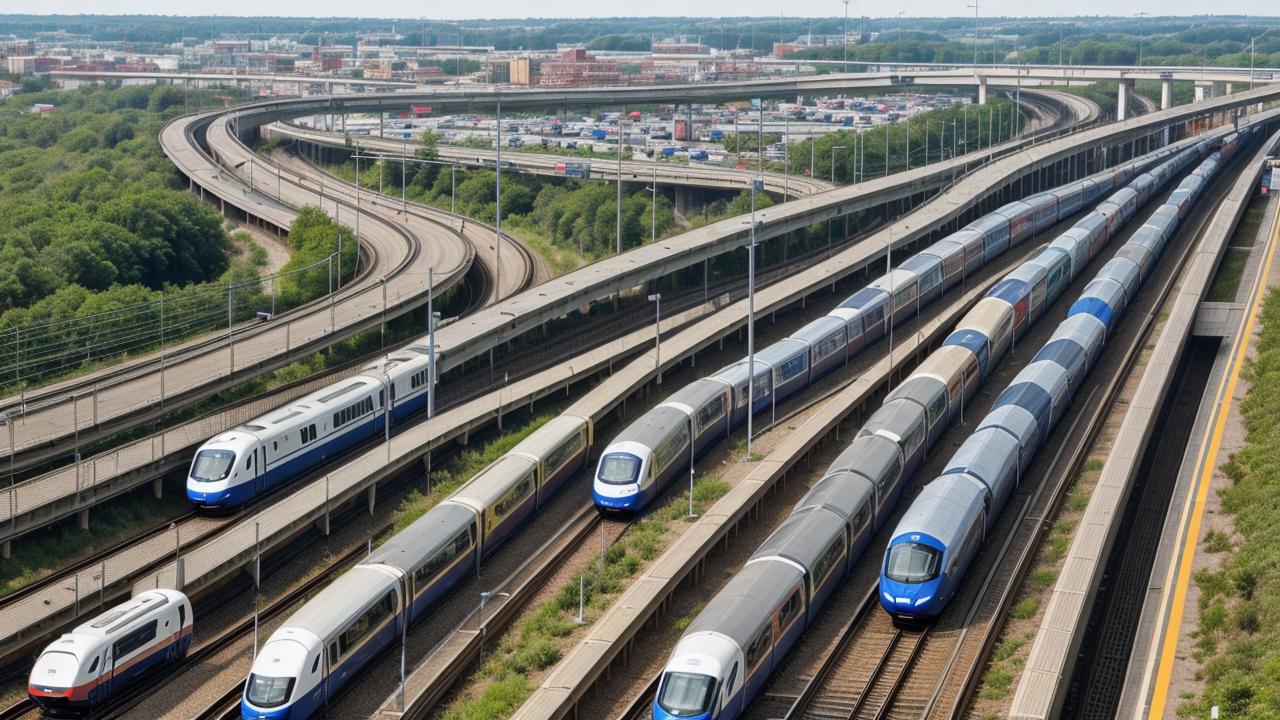The Societal Consequences of Chronically Late Individuals in Modern High-Speed Transportation Systems
Fri, 31 Jan 2025 02:24:05 GMT

The Psychological Toll of Tardiness on Fellow Commuters
In modern high-speed transportation systems, where punctuality is paramount, one individual's chronic lateness can have far-reaching and devastating consequences for those around them. The average commuter has grown accustomed to the 10-minute buffer that allows for unexpected delays or minor setbacks, but when this buffer is consistently breached, it sets off a chain reaction of frustration and resentment.
For those who are habitually late, there exists an unspoken understanding between fellow commuters: tolerance is stretched to its limits. What was once considered acceptable – a delay due to unforeseen circumstances – has morphed into an expectation that the tardy individual will somehow magically appear at their destination without incident. It's akin to assuming that time itself can be tamed and coerced into submission.
The effects of this unspoken agreement, however, are not limited to the passenger who is running behind schedule. Fellow commuters begin to feel a creeping sense of unease, their patience dwindling with each successive delay. As the minutes tick by and the train hurtles towards its destination, the collective anxiety grows – will today be the day that the chronically late individual finally arrives? The anticipation builds, akin to waiting for a ticking time bomb to go off.
But what happens when this toxic dynamic reaches critical mass? The usually stoic commuter may find themselves on the verge of a nervous breakdown, their blood pressure soaring with each passing minute. In extreme cases, the frustration boils over into full-blown anger – at the train's operators, the infrastructure, and even the universe itself.
And yet, despite this mounting chaos, there remains an undercurrent of desperation. A plea from the lips of the tardy individual: "Just give me one more chance." One more break, one more reprieve, and perhaps – just perhaps – they might finally arrive at their destination without causing any further mayhem.
This phenomenon is not unique to public transportation systems; it has far-reaching implications for our entire societal psyche. In an age where instant gratification and precision are the norm, our collective tolerance for tardiness is being constantly tested. As we hurtle towards a world of high-speed everything – from our smartphones to our spacecraft – perhaps it's time to re-examine our relationship with punctuality.
For those who are habitually late, there exists an unsettling truth: your chronic lateness is not just a minor inconvenience; it's a societal contagion. It's a cancer that spreads its roots deep into the fabric of modern society, wreaking havoc on those around you and leaving a trail of frustrated commuters in its wake.
And so, we find ourselves at a crossroads – one where our collective patience is stretched to breaking point, and our very sanity hangs precariously in the balance. Will we rise above this toxic dynamic, or will we succumb to the crushing weight of expectation? Only time will tell.
The Economics of Tardiness
At what cost does chronic lateness exact its toll on our society? The statistics are stark – for every minute that passes, a ripple effect of frustration and anxiety is sent coursing through the veins of fellow commuters. In an age where our every move is tracked and monitored, it's clear that our collective tolerance has reached an all-time low.
But perhaps the most insidious aspect of chronic lateness is its insidious creep into our daily lives. It disrupts workflows, creates inefficiencies, and fosters a culture of resentment. The financial impact is also significant: missed deadlines, lost productivity, and strained relationships can have far-reaching economic consequences.
Moreover, the psychological toll cannot be overlooked. For those who are chronically late, it can lead to chronic stress, anxiety, and even feelings of inadequacy. For others, it fosters frustration, mistrust, and a sense of injustice. In a world that values punctuality and reliability, chronic lateness can erode self-esteem and damage relationships.
And yet, despite these consequences, many continue to struggle with chronic lateness. It is a complex issue that often stems from underlying factors such as poor time management, lack of organization, or even psychological conditions like ADHD or anxiety. Addressing it requires not just personal effort but also systemic changes in how we approach time and deadlines.
As society continues to evolve, the importance of punctuality remains a cornerstone of success and harmony. Whether in personal relationships, professional settings, or public interactions, being on time is more than just a courtesy – it's a necessity. For those who struggle with chronic lateness, it's not just about arriving on time; it's about rethinking how we manage our lives, prioritize our tasks, and respect the people around us.
Ultimately, the economics of tardiness are clear: it comes at a high cost – both individually and collectively. By addressing this issue head-on, we can foster a culture of punctuality that benefits us all.